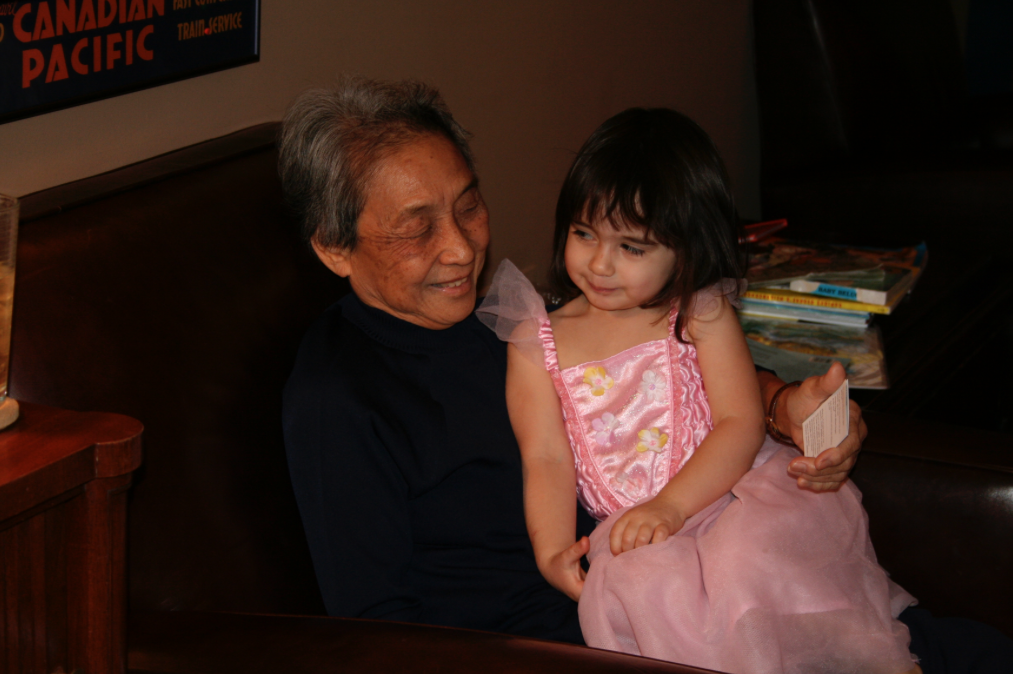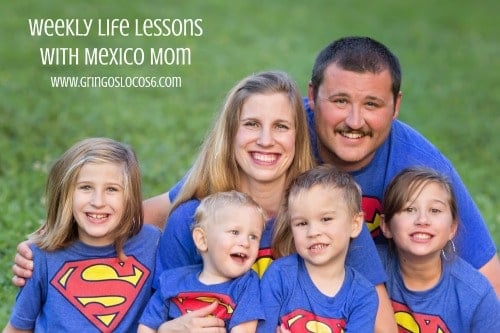
by Nadege Nicoll | Jan 15, 2015 | 2015, Awareness, Communication, Cultural Differences, Family, France, Girls, Global Citizenship, Humanity, International, Loss of Child, Motherhood, Nadege Nicoll, News, Older Children, Parenting, Terrorism, World Events, World Motherhood, Younger Children

A year ago, girls, teenagers who wanted an education so they could look forward to a great future, were abducted from their school in Chibok, Nigeria. They were taken away, kidnapped and removed from their family, because they were guilty of having ambitions. All these girls had to defend themselves were books.
What’s left of this horror is parents. Mothers and fathers, grieving for a loss that can never be overcome, hurting from a pain that will never lessen, left to wonder why, and knowing that no answer will ever alleviate their sorrow. Because there is no justification.
A few months ago, Peshawar happened and with it, the world once again, lost its innocence. Over 150 kids massacred, because they were guilty of being the children of their parents. All these kids had to defend themselves were notepads.
What’s left of this horror is parents. Mothers and fathers, grieving for a loss that can never be overcome, hurting from a pain that will never lessen, left to wonder why, and knowing that no answer will alleviate their sorrow. Because there is no justification.
Last week, my home country, France, was the theatre of repeated terrorist attacks. People were massacred because they went to work that day, or decided to do their grocery shopping. A brutal attack, with one side holding weapons, the other pencils.
And the violence continued with news of over 2000 killed in Baga, Nigeria.
What’s left of this horror is parents. Mothers, fathers, grieving for a loss that can never be overcome, hurting from a pain that will never lessen, left to wonder why, and knowing that no answer will ever alleviate their sorrow. Because there is no justification.
Mothers, fathers of this world, our families are being hurt beyond comprehension. Pencils are fighting bombs, words are matched with weapons. These violent attacks are not about gender, race, religion, background, or opinions. They are about pulverizing families. This is a call to unite. We all have a responsibility to do everything in our power to preserve our families and help others do the same.
We are all Chibok girls. We are all Peshawar. We are all Charlie.
How do we, global parents everywhere, teach our children to cherish and preserve their families? How do we unite to show them that violence is never the answer?
This is an original post to World Moms Blog by Nadege Nicoll. She was born in France but now lives permanently in New Jersey with her family. Nadege also writes a daily blog for moms who need to smile at everyday life. She can be found on Twitter, Facebook and her website www.nadegenicoll.com.
Image creation by author.
Nadege Nicoll was born in France but now lives permanently in New Jersey with her family. She stopped working in the corporate world to raise her three children and multiple pets, thus secretly gathering material for her books. She writes humorous fictions for kids aged 8 to 12. She published her first chapter book, “Living with Grown-Ups: Raising Parents” in March 2013. Her second volume in the series just came out in October 2013. “Living with Grown-Ups: Duties and Responsibilities” Both books take an amusing look at parents’ inconsistent behaviors, seen from the perspective of kids. Nadege hopes that with her work, children will embrace reading and adults will re-discover the children side of parenthood. Nadege has a few more volumes ready to print, so watch this space…
More Posts - Website
Follow Me:



by Cindy Levin | Jan 13, 2015 | 2015, Death and Dying, Family, International, Travel, World Moms Blog, World Voice

Maracas Bay Beach, Trinidad & Tobago. Photo by Lazette Nichols
Looking out of the plane window onto an endless ocean below, I thought about how long it took me to make a journey back to my father’s home country of Trinidad and Tobago, a pilgrimage long overdue.
It had been 30 years since I set foot on the island. My dad grew up in Trinidad and Tobago in the 1930’s when it was still British and roads doubled as donkey trails. The last time I was there at age 13, I was grieving over dad’s sudden death the year before and my cousins took us to see the American comedy hit Ghostbusters. This time, I was racing to Trinidad with my mom because of an email telling us that dad’s sister, my Aunt Cynthia, was in the hospital after a stroke and things looked dire. She had even received last rites. No one expected her to last until Christmas. My phone rang and Mom unexpectedly asked: “How do you feel about going to Trinidad…like, right now?”
As far as I know, there have been only two women in the world ever to be given the name “Cynthia Chang-Yit”: my aunt and me. A typo in an immigration office somewhere between China and Trinidad inadvertently gave my grandfather a unique last name.
Sharing the name made me proud that she was my special aunt and godmother. She always visited us for major family milestones…weddings, graduations, memorable Christmases, and – of course – Dad’s funeral. She seemed elegant to me, appearing every few years in our Minnesota winters bundled in the same fur coat. (Why buy a new winter coat when you live near the equator?) Her eyes crinkled when she smiled at my childhood silliness. I loved how my room held her powdery scent during and after her stay. I liked to usher her to my room so we could sleep in matching twin beds. The super-glued sign on the door back then read, appropriately, “Cynthia’s Room.”
It’s rare in life when one is actually faced with answering the rhetorical question: “If you knew you could see someone you love for one last time, how much would you pay for that chance?” I still don’t precisely know, but it suddenly became clear that it’s way more than the cost of a last-minute plane ticket to the Caribbean.
I boarded with luggage containing black funeral clothes as well as a swimsuit. I didn’t know what would happen. Would I attend her funeral? Sit for hours in a hospital? End up at a beach playing in the surf or staring pensively in grief? The only thing I knew for sure was that I wouldn’t have to wear snow boots.
My family has a very global history and I personally speak out to Congress about global concerns regularly, so why did it take this long to get me back to the islands? How many years went by as I dithered over when a “good time” to go to Trinidad would be? Lack of money, lack of vacation days, exam schedules, babies, a general unease with international travel…there was always something in the way. I’m reminded of the saying, “If you want something, you’ll find reasons. If you don’t, you’ll find excuses.” I eventually have to admit that I didn’t want it bad enough because – let’s face it – there is never a “good time” to go. Like all things in life, it simply has to be a priority or not. When I look at my list of excuses, they’re only the protests of someone not wanting to step out of her comfort zone. I have American friends who travel to see their families in Japan, Brazil, and Malaysia with babies and toddlers. These folks are neither particularly wealthy nor adventurous. They just place a higher value on the bonds of family and showing children what it means to be from the places where their families began.

‘Aunt Cynthia’ with the author’s daughter. Photo by Cynthia Changyit Levin
I’m happy to tell you that my mom and I were able to see Aunt Cynthia. As of today, she is at home and still hanging on. She could not speak nor move much when I saw her, but I was rewarded with the recognition on her face that I had finally come to visit. Her eyes crinkled a bit when I held a puppy up for her to see, knowing our shared love of dogs. She gave me exasperated looks when I asked if she liked the current Prime Minister or told her I hadn’t yet tried the local beer. I got the chance to sit by her side to read her the paper, put lotion on her hands, show her pictures of my daughters, give her flowers, sing her Christmas carols, and – above all – tell her I love her.
So, what is my takeaway from my long-overdue trip? Will I become a world traveler now? Will I visit my Trinidad cousins every year with my kids? Honestly, no. I’m still basically the same person who needs a push to use her passport. But I think I can find a happy medium between recreational globetrotting and never going at all. It’s in that middle ground where I found the beautiful experiences of standing on a beach with my mother where my father brought her as a newlywed, consulting with my cousins about our shared family recipes, and sitting at the side of someone who needed me.
Did you ever have the chance to say goodbye to someone you loved before they died, or missed the chance by not making the trip when you could have?
This is an original post written for World Moms Blog By Cynthia Changyit Levin.
Cynthia Changyit Levin is a mother, advocate, speaker, and author of the upcoming book “From Changing Diapers to Changing the World: Why Moms Make Great Advocates and How to Get Started.” A rare breed of non-partisan activist who works across a variety of issues, she coaches volunteers of all ages to build productive relationships with members of Congress. She advocated side-by-side with her two children from their toddler to teen years and crafted a new approach to advocacy based upon her strengths as a mother. Cynthia’s writing and work have appeared in The New York Times, The Financial Times, the Washington Post, and many other national and regional publications. She received the 2021 Cameron Duncan Media Award from RESULTS Educational Fund for her citizen journalism on poverty issues. When she’s not changing the world, Cynthia is usually curled up reading sci-fi/fantasy novels or comic books in which someone else is saving the world.
More Posts - Website
Follow Me:


by Tina Marie Ernspiker | Jan 9, 2015 | 2015, Family, Health, Husband, International, Kids, Life Lesson, Living Abroad, Mexico, Motherhood, Parenting, World Motherhood

As a wife of one and a mom of four, it seems like I am always learning and discovering! I know I am not alone. Let’s just admit it: The world is a big place, life is a lesson, and children can be the best teachers. Normally my series, Life Lessons with Mexico Mom, is hosted on Los Gringos Locos, but today I am posting here on World Moms Blog.
Here are my insights and experiences as a Mexico Mom for this week:
Life Lesson 43: There is a worldwide mommy clique. Let’s be honest. You have single cliques, couple cliques, and parent cliques. So far, in Mexico, we have not found our mommy and daddy clique. We have some wonderful friends, who we love very much, but they are either single or married without kids. I truly miss our parent clique in Louisville, Kentucky. Perhaps we need to widen out. Our family loves people so that shouldn’t be hard to do, we just need to make the effort. Parents understand parents. That is the mommy and daddy clique. Welcome to World Moms Blog, where we are all moms, all around the world 🙂
Life Lesson 44: Check your feet before you leave the house. The other day I left the house with my oldest daughter to go in our ministry. We were several blocks away when I realized I was still wearing my tacky, blue, house slippers. We turned around and a minute later Alexis exchanged my slippers for my sandals. My husband and my daughter had a good laugh. If I had actually made it to our destination before realizing what I was wearing, I wouldn’t have been able to change them. I would have walked around Morelia, Michoacan, Mexico in house slippers. That is what you get for being a busy, ADHD, mom of four!
Life Lesson 45: If your kid has a cold and is coughing up a storm, beware of spontaneous vomit. Both of our boys have a cold. They are miserable, with runny noses, coughing and hacking. Yesterday I was comforting our 20 month old. Then he proceeded to vomit milk in my hair. I was grossed out despite being quite familiar with pee, poo, snot, and vomit from my last 11 years of parenting. Brad cleaned the baby while I took a hot shower. FYI: Milk isn’t the best during a cold. It tends to increase the mucus. I should have known…
What life lesson did you learn this past week? Please share it with us below. We want to hear your thoughts from around the world!
This is an original post to World Moms Blog by Tina Marie Ernspiker. Tina can be found blogging over at Los Gringos Locos. She is also on Facebook and Twitter.
Photo credit to A. Hurst Photography

by Melanie Oda (Japan) | Jan 8, 2015 | 2014, Awareness, Child Care, Childhood, Culture, Domesticity, Education, Expat Life, Eye on Culture, Family, Feminism, Grandparent, Home, Husband, International, Japan, Life, Life Lesson, Living Abroad, Marriage, Me-Time, Motherhood, Multicultural, Parent Care, Parenting, Priorities, Relationships, Responsibility, School, Social Equality, Womanhood, Women's Rights, World Motherhood, Younger Children
 Gender equality has been in the news quite a bit in Japan recently, sort of, and some things have happened closer to home that have me thinking.
Gender equality has been in the news quite a bit in Japan recently, sort of, and some things have happened closer to home that have me thinking.
It started when a (female) Tokyo assembly member was heckled in a sexist way. Then Prime Minister Abe introduced some new policies to let women “shine.” (He needs to get them doing something for the economy.) He even appointed several women to cabinet posts, for about five minutes, until they were slapped back down into their places over minor scandals.
In Japan, people are talking more about issues women face but no one seems to be doing much about them.
(Lest I forget: strangely enough, the declining birth rate is treated as a “women’s issue.” I seem to remember my husband being involved, too.)
I never considered myself a feminist growing up. Some members of the evangelical, conservative community I grew up in doubtless felt “feminist” was a new version of the “F-word.”
OK, so I went to a high school with more sports options for boys than girls. And yes, girls were encouraged to take chorus and home economics instead of woodworking or mechanics. So maybe I heard men from my community refer to grown women as “broads” or “gals.” There also were some restrictions at church regarding women’s and men’s roles. But I never felt that possessing certain types of baby-making parts limited my potential.
Then I moved to Japan, where gender roles are more firmly entrenched and my way of thinking slowly changed.
As I get older, and because I am a mother, I find that I am limited in ways that I couldn’t have foreseen as a young girl.
Some people may find life here in Japan freeing. If you aspire to be a homemaker a la Martha Stewart, then your life’s work would be very much respected and appreciated here. My husband wouldn’t bat an eyelid if he came home to a messy house because I’d spent the day at a preschool mothers’ lunch. He knows that is part of the job (on the other hand, it would never occur to him to pick up the mess himself.)
If, as a woman, you have other aspirations, Japanese culture seems designed to work against you. The glass ceiling is very much in tact. On the news here you do hear issues like lack of childcare and “maternity harassment” being addressed. But what gets talked about less often is that to many women, including myself, it feels as if there’s a glass door as well.
It’s my front door.
Before a woman can even think about what is facing her out in the world, she needs to address the forces that are keeping her at home. Some of these are practical, some are logistical, some are cultural and perhaps peculiar to Japan and it’s work culture.
For me, it starts with my husband: He leaves home at 7am every morning, but I have no idea what time he will be back. Sometimes it’s 7pm. Sometimes it’s midnight. He may be in the office that day, or he may suddenly be sent to another prefecture. He’s made international trips on 12 hours notice. I cannot depend on him being home at a designated time, by no fault of his own. The idea of him taking time off with a sick child is preposterous in the extreme.
I have been lucky enough to have two job offers recently, both of which would be more or less during school hours, but neither is nearby. If a child were to get sick and need picking up, or if god-forbid there was a natural disaster (which is always in the back of your mind if you are a mother in Japan,) then my husband would be closer. I mentioned that, and he completely shot me down. Not just the idea of him picking up the kids in case of an emergency, but the idea of a job anywhere outside of cycling distance from the school.
We live in a residential neighborhood. I patch together some part-time work here and there, but it’s not like there are loads of professional opportunities in a two kilometer radius.
I suddenly felt very limited, penned in, in a way I haven’t felt before. The glass door was slamming in my face.
I don’t think I’m alone in this conundrum. Go to almost any supermarket in a residential area during the day, and you will see women in their prime working years manning the register. Many of these women have university degrees. Many have licenses and qualifications to be doing other kinds of work, but they want to stay close to home. They also need salaries to stay under $10,000 year or face a peculiar Japanese tax code and insurance system that penalizes families where both partners have incomes over that amount.
Then there are my kids: Like 2/3 of Japanese women with children under 6, I stayed home when they were small. They now completely depend on me for everything. It seems to have never entered their minds that someone else could give them a bath or help them find their missing socks, mostly because no one else has ever done anything for them. Especially when they are sick, they want only me. It was very hard when my daughter was in the hospital, both children wanting to be with me and emphatic that no one else would do.
But now my youngest is in elementary school, and I would like to just be doing more of something….else, but for me to plunge into the workforce would be a huge adjustment for my children. Is it worth the stress? Can we survive what is sure to be a painful adjustment period?
Maybe if I had more family support, it would feel less impossible but as it is, it seems like everyone is against me.
Which brings me to the final characters in this comedy, my in-laws: They say they’ll watch the kids, then they change their minds. Or something better comes up. From their point of view, this house and these people are completely my responsibility. Anything they do is extra credit.
To be honest, we’re getting to the point where my in-laws need my help more than I need theirs.
They aren’t shy about letting me know my place.
One day not too long ago, my son was playing at the park with his friends. It was getting close to homework time, so I called him and told him to come home. He said he was playing with Jiji (which is an endearing term for grandfather used in our region of Japan,) and could he play for a bit longer? Since he was out with an adult, I said okay.
The next day, I got a verbal whipping from my father-in-law over the phone, accusing me of being irresponsible, a bad mother. It took me a few minutes to understand why he was saying this, but when I got to the bottom of it, I realized my son had lied to me. He was playing with his friends when Jiji walked by and told him to go home. My son told him I wasn’t at home and said he couldn’t come back until I did. (I must have called right at this point.) “How dare you not be home in the afternoon?” said Jiji.
Putting aside that none of this nonsense was true, so what if I wasn’t home in the afternoon? Of course I wouldn’t have left the kids to wander the neighborhood like stray dogs, but why was my not physically being inside my house such an issue to him? His assumption that it was my duty to be always available to everyone took me by surprise.
I could almost hear the glass door slamming again.
There are also other barriers for women in Japan—an over active PTA for one, and a myriad of community responsibilities attended to exclusively by women for another. I imagine most women in the world encounter both the “glass door” and the “glass ceiling” in some form or another, but in Japan only one of these factors is seems to be getting much attention. Building new daycare facilities isn’t enough; the government stating goals to increase women’s participation in the workforce isn’t enough. Until we do something about that glass door, nothing will change for one of the best educated, least utilized group of women in the world.
Do you feel you are fulfilling your potential, both at work and at home? What’s the situation like in your country?
This is an original post for World Moms Blog from our writer and mother of two in Japan, Melanie Oda.
If you ask Melanie Oda where she is from, she will answer "Georgia." (Unless you ask her in Japanese. Then she will say "America.") It sounds nice, and it's a one-word answer, which is what most people expect. The truth is more complex. She moved around several small towns in the south growing up. Such is life when your father is a Southern Baptist preacher of the hellfire and brimstone variety.
She came to Japan in 2000 as an assistant language teacher, and has never managed to leave. She currently resides in Yokohama, on the outskirts of Tokyo (but please don't tell anyone she described it that way! Citizens of Yokohama have a lot of pride). No one is more surprised to find her here, married to a Japanese man and with two bilingual children (aged four and seven), than herself. And possibly her mother.
You can read more about her misadventures in Asia on her blog, HamakkoMommy.
More Posts

by Elizabeth Atalay | Jan 6, 2015 | 2015, Environment, Global Citizenship, Humanitarian, International, Milestones, Millennium Development Goals, Social Good, Sustainable Development Goals

The 2015 deadline for the eight Millennium Development goals is upon us. As of December 31st 2015 not all of the goals will have been met, but huge progress has been, and continues to be made. If anything the past 15 years showed what is truly possible with concerted effort and proper funding. The MDGs were set in the year 2000 by 189 nations, and the Millennium Goal Declaration was put in place as a step to alleviate extreme poverty around the globe. Negotiations of the Post 2015 development agenda are due to take place early this month, and will build on the progress made thus far through the 8 MDGs.
The next set of 17 sustainable development goals, which have 169 associated targets, are being referred to as the SDGs. The proposed goals are to end poverty, end hunger, achieve healthy lives for all, provide quality education, attain gender equality, empower women, and girls the world over. To ensure clean and sustainable water, sanitation, and sustainable energy for all. Goals include economic growth, resilient infrastructures, reduction of inequality between countries, to make cities safe, create resilient consumption and production cycles, urgently combat climate change, conserve our oceans, protect our ecosystems, create peaceful, inclusive and just societies, and strengthen global partnerships towards sustainable development.
On December 31st UN Secretary-General Ban Ki-moon released his synthesis report of all the suggestions entitled “The Road to Dignity by 2030: Ending Poverty, Transforming All Lives and Protecting the Planet”, and broke the SDGs into what he referred to as 6 essential elements to serve as conceptual guides in the work of outlining the final goals. Here are the six key elements according to a press release issued by UN Secretary-General Ban Ki-moon on December 4th of 2014.
1. DIGNITY
The first element is dignity: an essential element for human development, encompassing the fight against poverty and inequality.
2. PEOPLE
Second is people: Millions of people, especially women and children, remain excluded from full participation in society. We must finish the work of the Millennium Development Goals.
3. PROSPERITY
Third, prosperity: We must develop a strong, inclusive and transformative global economy.
4. OUR PLANET
Fourth, our planet: We have an urgent duty to address climate changes and protect our ecosystems, for ourselves and our children.
5. JUSTICE
Fifth, justice: to build safe and peaceful societies, and strong institutions.
6. PARTNERSHIP
And finally, partnership: because this agenda will be built on a foundation of global cooperation and solidarity.
These six broad categories provide a much more digestible approach to the 17 goals that will be finalized at the General Assembly in September of 2015. As #WorldMoms it will be our children, the next generation, who will carry through many of these goals, and be the ones help to innovate, execute, and hopefully see the end goal of eradicating extreme poverty by the year 2030.
What do you think of this new proposed set of SDGs?
This is an original post written by Elizabeth Atalay for World Moms Blog. She also writes at documama.org.

Elizabeth Atalay is a Digital Media Producer, Managing Editor at World Moms Network, and a Social Media Manager. She was a 2015 United Nations Foundation Social Good Fellow, and traveled to Ethiopia as an International Reporting Project New Media Fellow to report on newborn health in 2014. On her personal blog, Documama.org, she uses digital media as a new medium for her background as a documentarian. After having worked on Feature Films and Television series for FOX, NBC, MGM, Columbia Pictures, Warner Brothers, 20th Century Fox, and Castle Rock Pictures, she studied documentary filmmaking and anthropology earning a Masters degree in Media Studies from The New School in New York. Since becoming a Digital Media Producer she has worked on social media campaigns for non-profits such as Save The Children, WaterAid, ONE.org, UNICEF, United Nations Foundation, Edesia, World Pulse, American Heart Association, and The Gates Foundation. Her writing has also been featured on ONE.org, Johnson & Johnson’s BabyCenter.com, EnoughProject.org, GaviAlliance.org, and Worldmomsnetwork.com. Elizabeth has traveled to 70 countries around the world, most recently to Haiti with Artisan Business Network to visit artisans in partnership with Macy’s Heart of Haiti line, which provides sustainable income to Haitian artisans. Elizabeth lives in New England with her husband and four children.
More Posts

by Purnima Ramakrishnan | Dec 18, 2014 | 2014, India, Inspirational, International, Life, Life Balance, Motherhood, News, Parenting, Purnima, Social Equality, Social Good, Spirituality, Terrorism, The Advocates of Human Rights, The Alchemist, Tragedy, World Events, World Moms Blog, World Motherhood, World Voice

I was channel surfing on the TV yesterday afternoon and I was dumb-struck by the news of the attack on the army school in Peshawar. The latest reports say that almost 150 people were killed, the majority being children.
A mother was lamenting, “This morning my son was in a uniform, now he is in a coffin.”
A student was crying out that his mother, who was a teacher there, was dead.
On another website, I read that children reported how, when they ran out of their classrooms, they could see their friends’ bodies strewn around the school compound. One child reported that two bodies fell on him and then he realized they were his dead friends. Forget violent video games. Somewhere in the world, children were watching and being part of a very violent game, a game they had been caught in unawares, unwittingly, forcefully and in a confused illogical way.
‘Glory be to God,’ a terrorist screamed and gunned down the children who were hiding beneath the benches.
God? I have no words… Did he say “God???”
I generally do not venture into writing controversial topics in Journalism or in the blogging world. I just shy away from anything which would cause any discomfort for another party. But this one really broke my heart… It hits so close to home. I am a mother first. And I feel for all those mothers …
Yesterday night when I was discussing this incident with a friend on the phone, my son overheard it and started asking me a few questions. I changed the topic because I was not prepared to talk about it.
I was not even prepared to talk to my friend about it. Imagine, a mother going through it, living it … It just broke my heart. Was she prepared to not see her child anymore when she was bidding him goodbye in the morning?
This morning, when my son was ready for school, my heart was stuck in my throat. As he got into the car and waved back at me, I imagined what was going on in the hearts of all those mothers who had lost their kids. I imagined all those families who had lost their mothers (who worked as teachers) and I was lost for words or feelings.
I almost wanted to stop him and say, “Do not go to school.” But I waved back enthusiastically reminding him to eat the biscuits because he had not had his breakfast and chastised him for not having completed his glass of milk and let go of my heart out of my body.
And I know I am going to talk to him about it when he comes back home in the evening. I am going to tell him what happened in Peshawar, in our neighboring country.
I wouldn’t even say Pakistan is another country because just a few decades ago, India and Pakistan were the same country. I am going to tell my son that his brothers and sisters living just a few miles away were victims of violence and hatred and vengeance.
I am going to tell him that it is very necessary to be filled with love, to be able to spread love, peace and kindness.
To be filled with happiness, joy and life.
I am going to sow fresh seeds of love into his heart. I am going to teach him again that he has to nurture those seeds of love and allow them to grow into huge trees of love, spreading shade all over humanity.
I am going to tell my son again, how unconditional love is the only solution, and that alone breeds more love.
I am going to tell him he should not hate those perpetrators of crime either, who gunned down his brothers and sisters, but pray they change over too.
Yes, it is a tall order. But I think it is possible. If it is possible to think it, it is possible to do it, it is possible that somewhere in the future this reality manifests.
I feel it in my heart. If all of us World Moms can do this tiny bit to our children today, teach them that love is the only solution for hatred and violence, then the children would believe it too and there might be hope for the next generation.
So, dear mothers, this evening, when your children come home from school, give them all an extra big, tight hug and talk to them about this, and ask them to pledge their solidarity in spreading love and peace.
Today, World Moms, representing all the countries we write from, stand in solidarity and support of all those victims, the families and friends, and share their grief and express their prayers and love.
I conclude with this short nursery rhyme… and might I remind you, as a dear friend reminded me yesterday: there is a wealth of wisdom in Nursery Rhymes, even for adults.
This little light of mine,
I am going to let it shine.
Let it shine, let it shine, let it shine.
Everywhere I go,
I am going to let it shine.
Let it shine, let it shine, let it shine.
Deep within my heart,
I am going to let it shine.
Let it shine, let it shine, let it shine.
All around my friends,
I am going to let it shine.
Let it shine, let it shine, let it shine.
Let it shine, let it shine, let it shine.
This is an original post from our World Mom and Senior Editor in India, Purnima Ramakrishnan on the occasion of the “#DayOfTheGirl Child.”
Her contributions to the World Moms Blog can be found here. She also rambles at The Alchemist’s Blog.
Photo credit to the author’s friend, Mahalakshmi.

























